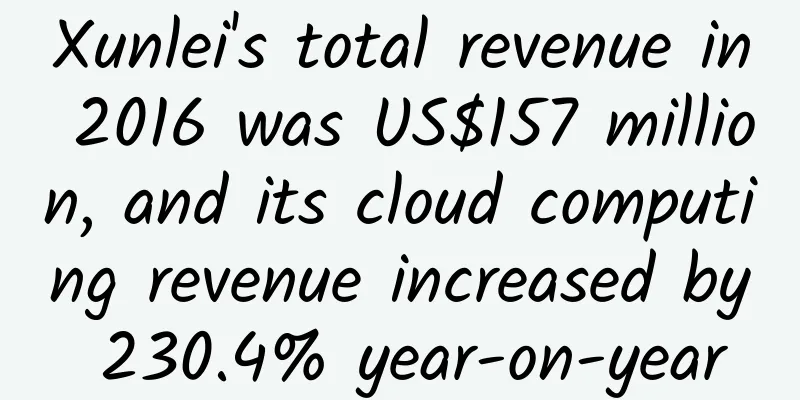Cloud computing: the first city of new infrastructure to emerge during the epidemic

|
There is no doubt that 2020 is a huge boom period for the cloud computing market. While the sudden outbreak of the epidemic has triggered a global public health revolution, it has also brought new growth potential to cloud computing vendors such as Microsoft Cloud, Amazon Cloud, Alibaba Cloud, and Kingsoft Cloud. This is directly reflected in the explosive growth of users of remote office tools such as DingTalk, WeChat for Enterprise, Zoom, and Kingsoft WPS. Kingsoft Cloud was directly listed on the Nasdaq, becoming the first domestic cloud computing stock to climb to the US market.
Overseas, the epidemic is still spreading, and Bill Gates believes it may take 18 months to control the epidemic. This also means that companies will not be able to resume normal offline operations for a long time, and online operations and digital operations will become the norm for companies, and corporate services will also shine. In China, the introduction of new infrastructure has made 5G base stations, ultra-high voltage, intercity high-speed railways and intercity rail transit, new energy vehicle charging piles, big data centers, artificial intelligence and industrial Internet new targets for capital pursuit, and industrial development has embarked on a "journey to the cloud". It can be seen that the digital transformation of enterprises has become a consensus both at home and abroad. With the improvement of cloud computing infrastructure, the digital transformation of enterprises based on cloud services will be further accelerated. At the same time, the large-scale digital transformation of enterprises around the world has also stimulated another explosion in the cloud computing market. 1. New infrastructure boom: cloud computing becomes a rigid demand for digitalization Affected by the epidemic, the penetration rate of online shopping among residents has further deepened. At the same time, the epidemic has promoted the popularization of more business experiences such as online medical care, online education, and remote office, and promoted the rapid growth of business volume of video, game, "home" service, remote office and other enterprises, which in turn put forward higher requirements for the digitalization and intelligent operation of enterprises. At present, the expansion of digitalization and intelligentization needs of Internet companies is the main driving force for the growth of the cloud computing market. With the implementation of the "new infrastructure", the cloud computing industry will enter a leap forward. The development of "new infrastructure" is guided by the scientific and technological revolution and industrial revolution, and supported by digitalization and intelligence, and cloud computing is the core of digitalization. As the core technical foundation of "new infrastructure", promoting traditional enterprises to move to the cloud, the transformation of various industries, and the development of industrial Internet will all revolve around "cloud". Earlier, the advantages of cloud computing, such as cost savings, security and efficiency improvement, attracted a number of traditional enterprises and governments to "go to the cloud", but the proportion of traditional enterprises "going to the cloud" was low in the past. However, the proposal of "new infrastructure" has made "going to the cloud" a rigid demand, and the trend of traditional enterprises and governments "going to the cloud" has started again, and the cloud computing market has ushered in new growth. It is reported that in 2018, only 10.1% of traditional Chinese enterprises used cloud services, far lower than 49.2% in the United States. In the next five years, the growth rate of cloud services for traditional Chinese enterprises will reach 29.7%, among which financial cloud, manufacturing cloud and government cloud will develop the fastest. Furthermore, under the new infrastructure, the rapid development of disruptive technologies such as big data, the Internet of Things, artificial intelligence, and 5G will provide a technical foundation for the take-off of the cloud computing industry. 5G's characteristics of large bandwidth, high speed, low latency, high reliability, and massive connections will allow cloud computing, artificial intelligence, and the Internet of Things to move forward steadily, and also make it possible to replicate traditional offline models online. The scale of the cloud computing market will continue to expand. Under the tide of "new infrastructure", domestic leading cloud service providers such as Alibaba Cloud, Tencent Cloud, and Kingsoft Cloud have ushered in new development dividends. China's industrial Internet era has officially begun, and the tension between the "cloud giants" has become increasingly intense. 2. The “De-IOE” Revolution is Coming to an End Ten years ago, traditional server manufacturers such as IBM, Oracle, and Inspur dominated the government and enterprise data service market, and the data service market was still a different world. In the past, under the traditional model, the combination of IBM minicomputers, Oracle databases and EMC storage devices, which constituted a complete commercial database system from software to hardware, was sufficient to meet the market's data operation and storage needs. At that time, traditional IT vendors represented by "IOE" were deeply loved by large government and enterprises, and Internet giants such as Alibaba and Microsoft were once "IOE" supporters. However, after entering the era of cloud computing, the amount of data and processing in data centers have increased dramatically, and the problems of IOE scalability, cost, energy consumption, efficiency, etc. have gradually been exposed. At this moment, the trend of cloud services is gradually rising, and cloud computing has quickly replaced IOE with its advantages of higher efficiency and guaranteed data security. New technology beats old technology, and the ending is clear: Amazon and Alibaba have developed their own databases, and the great tide of "de-IOE" has begun. The "Global Cloud Computing IT Infrastructure Market Forecast Report" released by IDC shows that in 2019, the proportion of global cloud IT infrastructure exceeded that of traditional data centers, becoming the market leader. In the "bringing forth the old from the old" campaign, traditional server vendors such as IBM, Inspur, and Oracle have gradually withdrawn from the stage, while cloud computing vendors such as Microsoft Cloud, Amazon Cloud, Alibaba Cloud, and Kingsoft Cloud at home and abroad have emerged. 3. The reshuffle accelerated in the second half, with Meituan Cloud and Suning Cloud falling behind The domestic public cloud market is growing rapidly, the market size is expanding, and more and more players are trying to grab the pie. Small and medium-sized cloud service companies such as Tencent, Kingsoft, Suning, and Meituan have joined the battlefield. The second half of cloud computing has entered a chaotic period of contention among hundreds of schools of thought, and it has also ushered in a reshuffle period. Under the filtering of industry barriers such as technology and ecology, as well as the long-term and huge capital threshold, coupled with the squeeze of "cloud giants" such as Tencent and Alibaba, some cloud service providers also quickly fell. In 2020, Suning Cloud and Meituan Cloud fell behind one after another, which also indirectly verified the fierceness of the domestic cloud computing battlefield. According to the China Public Cloud Market Report for the fourth quarter of 2019 released by Canalys: the top three cloud service market share companies, Alibaba Cloud (46.4%), Tencent Cloud (18%), and Baidu Smart Cloud (8.8%), have a combined market share of 73.2%. This shows that there is little room for survival for new entrants and small-scale cloud computing companies. What’s interesting is that a “dark horse” has emerged among the Internet giants. Kingsoft Cloud has become the first camp in cloud computing with its unique and rapidly expanding market share. According to Sullivan's market report, Kingsoft Cloud's market share increased from 1.7% in 2014 to 5.4% in 2018. It is China's largest independent cloud service provider and one of the top three Internet cloud service providers. At the same time, according to public data, Kingsoft Cloud's operating income reached RMB 3.96 billion in 2019. In three years, the compound annual growth rate of revenue was as high as 79%, far exceeding the industry average growth rate. In addition, it has attracted 243 high-quality customers (referring to customers with annual contribution of more than RMB 700,000) including industry leaders such as ByteDance and Bilibili, and the net retention rate of public cloud high-quality customers is as high as 155%. Obviously, whether it is Alibaba Cloud, Tencent Cloud or Kingsoft Cloud, they have their own advantages in winning the melee. From the first-tier camp, we may be able to glimpse the rules that the "cloud giants" have developed. 4. The strong desire to be strong, and the Matthew effect is significant Whenever there is a new field, new trend, or new reform, Internet giants will compete with each other. After a fierce competition, the market has decided on the winners such as Alibaba Cloud, Tencent Cloud, and Kingsoft Cloud. It is worth noting that the "cloud giants" have something in common. First, it has the support of an Internet giant, has strong user resources, corporate relationship networks, and a good reputation. Tencent Cloud entered the market late but quickly expanded the size of the cloud market based on the huge WeChat social ecosystem and resources in industries such as education, finance, public services and tourism; Kingsoft Cloud originated from Kingsoft Software and has more than 30 years of enterprise service genes and experience; Alibaba Cloud itself has Internet resources such as finance and e-commerce, so its huge success is expected. Second, it has strong financial strength, which can meet the high capital investment needs of building cloud infrastructure, developing R&D capabilities, and expanding procurement and sales channels. Competition in the cloud computing market among giants is a long-term contest of funds and resources. As we all know, Alibaba Cloud and Tencent Cloud are involved in various industries, with a huge market scale and strong profitability, and sufficient cash flow to support the development of the cloud computing market. Kingsoft Cloud relied on Lei Jun's resources in the early days, and its competitive strength will be further enhanced after its successful listing in the United States. Third, leading technical strength. Cloud services are technology-based services, and the public cloud market naturally attaches great importance to the technical capabilities of cloud computing platforms. On the technical level, Kingsoft Cloud has long been focused on cloud business, with solid technology, extensive product layout and strong neutrality. It is also well aware of the development trends of various industries and strengthens enterprise-level customer service capabilities based on the needs of industries such as video, games, finance, and government affairs. Similarly, Tencent, Alibaba, and Baidu are the leading clouds, and their technical strengths in cloud computing, big data, AI, and 5G are self-evident. In summary, Alibaba Cloud, Tencent Cloud, and Kingsoft Cloud have strong resources, experience, capital, and technical strength, which is also the fundamental reason for the intensification of the Matthew effect in the market. 5. China and the United States are now in a two-way tie in the global cloud computing landscape Today, driven by the epidemic and the new infrastructure, "cloud giants" such as Alibaba Cloud, Tencent Cloud, and Kingsoft Cloud are gearing up to challenge Microsoft Cloud and Amazon Cloud. A few years ago, Microsoft Cloud and Amazon Cloud were still out of reach. Public data shows that Amazon's cloud service revenue was $3.108 billion in fiscal year 2013, and rose to $25.655 billion in fiscal year 2018, with a compound annual growth rate of 52.5%. Microsoft's cloud business revenue was $1.3 billion in fiscal year 2013, and rose to $23.2 billion in fiscal year 2018, with a compound annual growth rate of 78%. Currently, Alibaba Cloud and Tencent Cloud are aggressively squeezing the market share of Microsoft Cloud and Amazon Cloud, and Kingsoft Cloud is following closely to explore emerging and international markets. On May 8, Kingsoft Cloud officially landed on the Nasdaq, becoming the first Chinese cloud computing stock to be listed in the United States. Kingsoft Cloud clearly stated in its prospectus that the proceeds from the listing will be used to further upgrade and expand the infrastructure; invest in technology and product development in artificial intelligence, big data, cloud technology, the Internet of Things, etc.; and fund ecosystem expansion and international influence. On April 20, Alibaba Cloud officially announced that it would invest another 200 billion yuan in the next three years to tackle the R&D of major core technologies such as cloud operating systems, servers, chips, and networks, as well as to build data centers for the future. By then, the scale of Alibaba Cloud's data centers and servers will triple, and it will become the world's largest cloud infrastructure. This makes it possible for Alibaba Cloud to surpass Microsoft Cloud and Amazon Cloud... In short, the implementation of new infrastructure is bound to expand the scale of the cloud service market, and domestic "cloud giants" will once again devote themselves to competition and sound the clarion call for entry into the international market, which will also drive the rapid growth of the entire cloud computing market. The global cloud computing landscape will officially usher in a situation where China and the United States will stand on equal footing. 6. Cloud computing ushered in a new era of digital economy At present, the world is entering the digital economy era in an all-round way, and my country's digital economy construction is also in full swing. In this digital economic transformation, cloud computing, as the "digital foundation", is an important driving force for the development of the digital economy. Alibaba Cloud, Tencent Cloud, and Kingsoft Cloud, which are rapidly rising at this stage, will become effective "boosters" to promote the development of the digital economic form. Cloud service providers such as Alibaba Cloud and Kingsoft Cloud have helped shape the digital economy era, which is reflected in the digitization and intelligence of traditional industries and the convenience and quality of users' lives. On the one hand, cloud technology empowers various industries such as finance, telecommunications, government, manufacturing, energy and transportation, and promotes the digital transformation of the industry. On the other hand, intelligent products and tools developed based on cloud computing technology benefit consumers. For example, people's shopping is more convenient, remote work is more convenient, and there is no need to lag when watching videos or playing games. The digital economy is becoming the main engine of global economic growth, and the upgrading of the world economy to the digital economy is an inevitable trend. As the infrastructure of the digital economy era, the "new infrastructure" will drive the strong rise of my country's digital economy. In the long run, cloud service providers such as Alibaba Cloud, Tencent Cloud, and Kingsoft Cloud will "pave the way" for China's digital economy, creating new business experiences, new industry applications, and new industrial layouts. At the same time, driven by huge market demand, the cloud computing market will also usher in a major explosion and become the "first new infrastructure city" that has emerged during the epidemic in the digital economy era. |
<<: How to move your contact center to the cloud to prepare for the pandemic
Recommend
TNAHosting: 12GB memory OpenVZ monthly payment from $5, 4GB memory KVM monthly payment from $5
I checked and it's been exactly one year sinc...
Juniper Networks' Shaowen Ma: The best SDN controller for cloud computing
[51CTO.com original article] The interview with M...
VULTR Launches Free VPS Plan
VULTR released information about the launch of a ...
[Black Friday] ITLDC: Unlimited traffic VPS annual payment 40% off €22.98/year, 15 data centers in the United States/Singapore/Netherlands/Ukraine, etc.
ITLDC's Black Friday promotion targets regula...
Take a look at Sigfox, LoRa, and NB-IoT: wireless transmission technologies in the era of the Internet of Things
Wireless communication technology is the transmis...
ArticHost: $3.19/month KVM-2GB/60GB/100M unlimited traffic/Chicago data center
According to information from LEB, ArticHost is a...
The three-layer switch you know works like this
Why do we say that the Layer 3 forwarding perform...
July operating data of the three major operators: 5G becomes the "driving force" of growth, with the number of users exceeding 500 million
Recently, the three major operators have released...
Wireless sensor network standardization progress and protocol analysis
[[188829]] As an application-oriented research fi...
Zhao Rong wishes you good luck in the Year of the Dragon! All the best!
In spring there are hundreds of flowers, in autum...
Huawei Enjoy 10S comes with 48MP ultra-wide-angle AI triple camera, empowering photography for 1,000 yuan smartphones
This afternoon, Huawei's new product launch c...
F5 is committed to being a "general practitioner" protecting hospital applications by taking a two-pronged approach of safety and reliability
At a time when all walks of life are experiencing...
By 2027, the global Wi-Fi 6 market will reach $26.2 billion
According to market research firm ResearchAndMark...
How 5G will impact payment processing in 2021 and beyond
[[437603]] If you follow current events, you’ve p...
RF chip, a pearl in 5G mobile phone
According to statistics, in the fourth quarter of...









